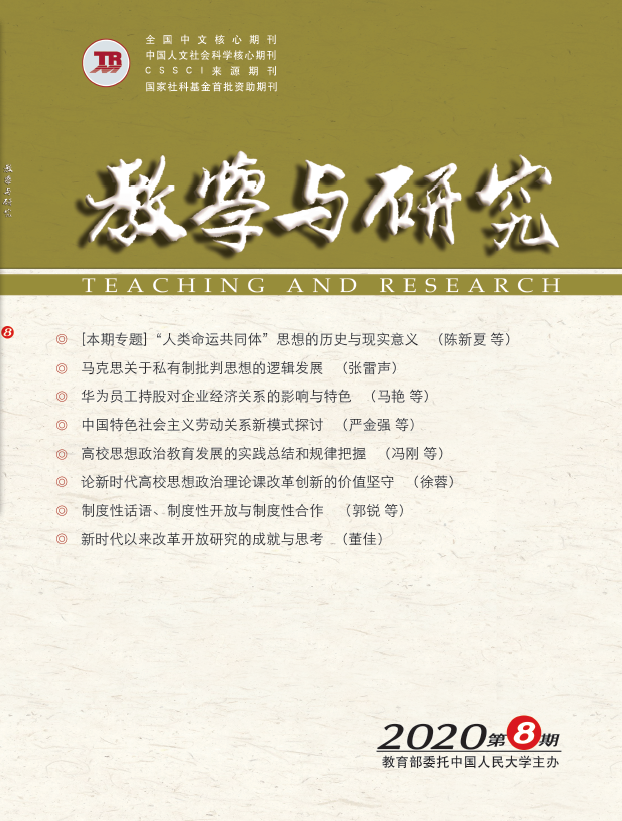Reform and innovation is the spirit of the times, and the construction of ideological and political courses should be energetic to reform and innovation. We should stand on the height of new era and make clear “why we do ideological and political lessons”, “what kind of ideological and political lessons to do”, and “how to do well the ideological and political lessons”, as well as making indepth study on the purpose, goal, direction, content, effectiveness of innovation of ideological and political lessons. In particular, we need to examine the exploration and contributions made by the construction of ideological and political courses in colleges and universities to educational responsibilities, educational quality, and educational models from the perspective of whether reforms and innovations adhere to their proper value positions, value goals, and value principles, so as to promote more effective promotion reform and innovation, and do a good job of ideological and political courses in colleges and universities.



